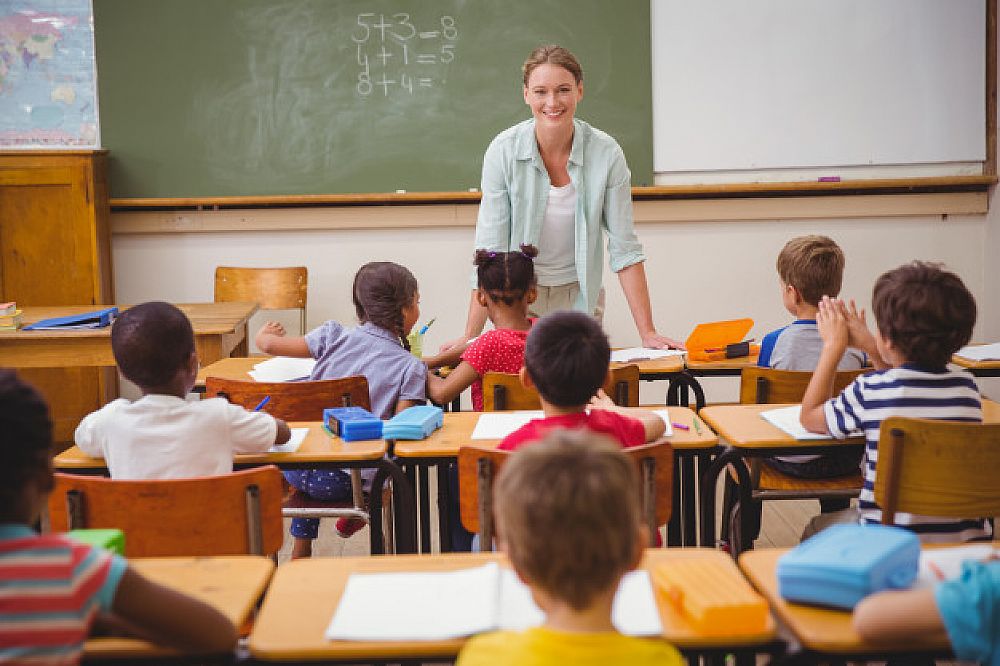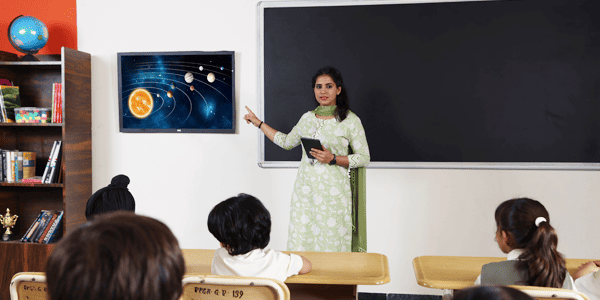Expert Tutors Offering Primary Science Tuition Singapore for All Grades
Expert Tutors Offering Primary Science Tuition Singapore for All Grades
Blog Article
A Comprehensive Overview to the Different Knowing Methods in Primary Scientific Research Guideline
The exploration of varied discovering approaches in main scientific research guideline provides a possibility for teachers to enhance trainee interaction and understanding dramatically. By examining hands-on understanding methods, inquiry-based techniques, and collaborative approaches, we can identify efficient techniques that deal with numerous discovering styles. In addition, the combination of modern technology and differentiated guideline plays an important function in promoting a comprehensive atmosphere. The inquiry continues to be: exactly how can these methods be properly executed in the class to maximize their impact? The response hinges on a more detailed evaluation of each method and its implications for mentor science.

Hands-On Learning Strategies
Hands-on learning techniques play an essential function in main science direction, engaging trainees in energetic expedition and trial and error. These methods permit students to interact straight with sensations and materials, cultivating a deeper understanding of clinical principles. By utilizing manipulatives, models, and real-life experiments, educators produce an environment where pupils can observe, assume, and evaluate their ideas.
Such methods not just boost comprehension however additionally cultivate important reasoning and analytical skills. When pupils take part in activities like developing straightforward equipments, growing seeds, or performing chemical responses, they are urged to ask concerns and look for solutions through their own monitorings. This experiential technique helps to demystify complex scientific concepts, making them a lot more obtainable and relatable.
In addition, hands-on knowing advertises partnership among peers, as pupils commonly function in groups to perform experiments or share searchings for. This teamwork not only improves their understanding experience but additionally develops essential social skills. Ultimately, integrating hands-on strategies in key scientific research instruction cultivates a lifelong love of understanding and interest regarding the all-natural world, laying a strong structure for future scholastic searches in science and past.
Inquiry-Based Discovering
Inquiry-based understanding is a training method that urges pupils to ask concerns, check out sensations, and construct their own understanding of scientific concepts. This method changes the focus from typical teacher-led direction to a much more student-centered experience, where students take the campaign in their educational journey. By cultivating interest, inquiry-based knowing advertises much deeper interaction with the material, enabling trainees to discover subjects in a significant context.
In technique, this strategy typically includes hands-on experiments, observations, and vital reasoning tasks that straighten very closely with the clinical method. Trainees are motivated to develop hypotheses, layout investigations, and assess information, which grows essential abilities such as analytical and analytic thinking. The function of the instructor in this structure is to help with expedition, leading students through the query procedure while motivating independent thought and collaboration.
Additionally, inquiry-based understanding supports a feeling of possession over the knowing process, motivating trainees to seek expertise actively. This technique not only boosts understanding of scientific principles however likewise fosters a long-lasting love for knowing, equipping students with the abilities required to navigate a progressively complicated world.
Collaborative Learning Approaches
Collective understanding strategies encourage pupils to engage in significant communications with peers, cultivating a shared obligation for their academic end results. In key science guideline, these strategies encourage students to work together to discover scientific principles, resolve troubles, and conduct experiments (primary science tuition Singapore). By taking part in group activities, pupils can utilize diverse viewpoints, permitting for richer understanding and retention of scientific understanding
One key aspect of collaborative learning is the focus on interaction abilities. Trainees must express their thoughts, pay attention proactively to others, and discuss concepts, all of which are essential proficiencies in both real-world and academic contexts. This social interaction not only enhances their understanding of clinical principles yet also promotes team effort and conflict resolution skills.
Additionally, joint discovering typically leads to raised inspiration and involvement. When students see the value of their payments within a group, they are most likely to take possession of their discovering trip. Teachers can facilitate this process deliberately organized group jobs that align with curriculum objectives while supplying assistance on efficient partnership strategies. On the whole, integrating joint understanding methods in key science instruction grows website link a dynamic understanding setting that prepares trainees for future scholastic and social difficulties.
Technology Combination in Scientific Research
The assimilation of innovation in main science guideline improves discovering experiences by providing innovative tools and resources that sustain various training methods, consisting of collective learning - primary science tuition Singapore. The use of electronic platforms, simulations, and interactive applications allows trainees to involve deeply with clinical principles, facilitating a more hands-on method to understanding
Digital research laboratories, for instance, make it possible for learners to perform experiments safely and effectively, promoting inquiry-based discovering. These tools can imitate real-world scientific circumstances, permitting students to envision complex processes that would be challenging to replicate in a typical classroom setting. Furthermore, technology promotes communication and partnership amongst students, as they can share findings and collaborate on jobs through on-line platforms.
Furthermore, multimedia discussions and instructional videos can improve lessons by dealing with varied understanding styles, making abstract ideas more accessible. Data analysis tools likewise equip students to accumulate and interpret scientific information, reinforcing vital assuming abilities. Generally, the strategic consolidation of innovation in primary scientific research guideline not just enhances interaction yet also prepares trainees for a highly innovative culture, outfitting them with vital skills for future clinical ventures.
Differentiated Guideline Methods
Differentiated instruction methods are important for attending to the diverse needs of learners in main science education. These methods make it possible for educators to customize their training approaches to fit differing capacities, rate of interests, and learning designs within the class. By utilizing distinguished guideline, instructors can create an inclusive setting that fosters engagement and boosts understanding of scientific concepts.
One efficient strategy is to make use of flexible grouping, which allows pupils to collaborate with peers at similar ability degrees or with varying point of views. This technique encourages peer learning and advertises crucial reasoning. Furthermore, providing options click here for more info in tasks can empower trainees, enabling them to choose projects that resonate with their rate of interests while still fulfilling curricular goals.
Furthermore, incorporating tiered assignments is one more beneficial strategy. Deliberately tasks with varying degrees of complexity, educators can make sure that all trainees are appropriately tested, no matter their proficiency. Using formative analyses to assess recognizing further enables instructors to readjust their instructional techniques dynamically, making sure that each student receives the support they need.
Ultimately, implementing separated instruction approaches in primary science education not only improves student discovering end results yet also grows a passion for science, preparing trainees for future academic pursuits.

Verdict
In recap, effective key science direction necessitates a multifaceted strategy that encompasses hands-on learning, inquiry-based approaches, and collective strategies. The combination of innovation and set apart direction better deals with varied knowing designs, fostering an environment for expedition and important reasoning. By implementing these strategies, educators can enhance pupil interaction and understanding, eventually supporting a long-lasting passion for science and questions. Such detailed techniques are important for developing educated and curious future scientists.
The exploration of varied discovering techniques in key scientific research guideline provides a chance for find more info instructors to boost pupil involvement and understanding substantially.Hands-on learning methods play a critical function in primary scientific research guideline, involving students in energetic exploration and testing.Inquiry-based knowing is an educational approach that motivates students to ask questions, check out phenomena, and create their very own understanding of clinical concepts.Collective discovering strategies encourage trainees to engage in meaningful communications with peers, fostering a shared responsibility for their educational outcomes. On the whole, including joint understanding techniques in primary scientific research direction cultivates a vibrant learning setting that prepares pupils for future academic and social obstacles.
Report this page